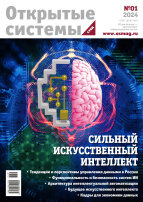.jpg)
COVER FEATURES
BLOCKCHAIN
The Internet of Things, Artificial Intelligence, Blockchain, and Professionalism
Digital transformation is affecting industries across global markets. Market segments, including industrial manufacturing, healthcare, financial services, food services, and automotive, are increasingly adopting Artificial Intelligence, Internet of things, robotic process automation, and Blockchain technologies. Can we use AI to empower IoT for accurate data acquisition and analysis real-time model development and prediction, while utilizing a Blockchain foundation to reduce risks, support risk mitigation strategies, and enhance integrity and security?
Jeff Daniels (jeff.w.daniels@gmail.com), chief technologist, Lockheed Martin Aeronautics; Saman Sargolzaei (ssarg004@gmail.com), postdoctoral scholar, University of California at Los Angeles; Arman Sargolzaei (a.sargolzaei@gmail.com), professor, Florida Polytechnic University; Tareq Ahram (tareqahram@gmail.com), lead scientist, Institute of Advanced Systems Engineering; Philip A. Laplante, professor, Penn State University; Ben Amaba, chief innovation officer, IBM Industrial Watson and Cloud Division.
Developing Open and Interoperable DLT/Blockchain Standard
A common set of distributed ledger technology or blockchain standards and a focus on interoperability and scalability are among several industry requirements that are essential for the survival and mass adoption of this technology. Which standardization efforts currently exist in the field?
Claudio Lima (clima@blockchain-eng.org), vice chair, IEEE Blockchain Standards Working Group.
Pitfalls of Blockchain Solutions Certification
Trust in IT systems is ensured through various forms of certification, with blockchain solutions certainly not being an exception. Yet it turns out that to certify blockchain solutions for compliance with the rules for using domestic cryptography algorithms is way easier than to overcome the multitude of problems faced when implementing blockchain initiatives these days.
Andrei Elistratov (elistratov_aa@tc26.ru), Georgy Marshalko (marshalko_gb@tc26.ru), Vladimir Svetushking (svetuschkin_vv@tc26.ru), agents, Federal Security Service of Russia (Moscow).
Blockchain in Case Studies
Despite the fact that the hype surrounding cryptocurrencies and blockchain is over, and the interest in the crypto industry becoming significantly lower, blockchain based technologies are still actively developing, with expectations for them to be embedded in business processes and government systems.
Ruslan Yusufov (yusufov@mindsmith.io), managing partner, Yelizaveta Chalenko (chalenko@mindsmith.io), senior analyst, Mindsmith.io (Moscow).
Practical Blockchain
Distributed ledger technologies, and blockchain in particular, have been included in the list of key infrastructure components of Russia's digital economy, but blockchain has now fallen into the “trough of disillusionment”. And yet, there are still grounds to be optimistic when discussing the distributed ledger potential, and the reason may be not just the technology itself.
Mikhail Chekanov (m@kb-kontrakt.ru), managing partner, Kontrakt Design Bureau, expert, Communication and IT Working Group of the Expert Council under the Government of Russia; Dmitry Volkov (vlk@keldysh.ru), researcher, Keldysh Institute of Applied Mathematics (Moscow).
PLATFORMS
Towards Unified Grid Systems
The challenge of integrating diverse computing and data resources is more pressing than ever these days; yet bringing together the necessary software tools and assets into a single whole is far from being an easy task.
Alexander Muskatin (amus@free.net), engineer, Mikhail Kuzminsky (kus@free.net), fellow, N.D. Zelinsky Institute of Organic Chemistry (Moscow); Alexander Rudakov (alex.rus.212@mail.ru), principal, Yaroslavl State University (Yaroslavl).
IT MANAGEMENT
Agile Collaboration for Distributed Teams
Distributed agile teams traditionally have relied on developing custom interpretations of agile practices as well as on adopting an ever-growing plethora of tools. However, this does not scale anymore to fast deliveries and an increasing need for governance, quality, and cost-efficiency. We present here some of the most successful tools used by companies to support collaboration in distributed agile teams.
Fabio Calefato (fabio.calefato@uniba.it), assistant professor of computer science, University of Bari; Christof Ebert (christof.ebert@vector.com), managing director, Vector Consulting Services.
INTERNET
An Hour before Cutting Off Internet
Modern Internet infrastructure and architecture provide technical ability to mass block 'Net access or fully disable its large segments. Selective access blocking, however, is much harder to implement.
Alexander Vedenyukhin (inbox@alex.vened.ru), lead analyst, Internet Technical Center (Moscow).
INTEGRATION
Human-Aided Bots
While natural language understanding and machine learning techniques have advanced rapidly, current fully automated chatbots still struggle to serve their users well. Human intelligence, brought by crowd workers, freelancers, or even full-time employees can be embodied in the chatbot logic to fill the gaps caused by limitations of fully automated solutions. Such human-aided bots use humans in the loop to operate.
Pavel Kucherbaev (p.kucherbaev@tudelft.nl), post-doctoral researcher; Alessandro Bozzon (a.bozzon@tudelft.nl), associate professor; Geert-Jan Houben, full professor, Delft University of Technology.
OS ACADEMY
Russian Scientific Data Exchange
Russia has dozens of funds and organizations providing grants for long-term scientific research projects that generate vast amounts of heterogeneous, siloed, semi-structured data. Tracking all of those projects is a non-trivial issue, which could be addressed by the Russian Scientific Data Exchange.
Marina Golosova (golosova_mv@nrcki.ru), Maria Grigorieva (maria.grigorieva@cern.ch), researchers, Kurchatov Institute; Alexei Klimentov (alexei.klimentov@cern.ch), fellow, Brookhaven National Laboratory, National Research Nuclear University MEPhI (Moscow).
Where to Study to Become a Data Scientist?
What opportunities do currently exist for studying data science, given that the long education cycle characteristic of the higher education system is no longer the best option in the eyes of employers?
Irina Sheyan (rrisha@osp.ru), reviewer, Open Systems.DBMS Journal (Moscow).
LIBRARY
Smart Cities Based on Resilient Cyberphysical Systems
The November and December Issues of Computer Magazine (IEEE Computer Society, Vol. 51, No. 11, 12, 2018) cover cyberphysical systems resiliency issues and the subject of government in the era of big data and smart cities.
Alexander Tyrenko (shoorah@osp.ru), reviewer, Computerworld Russia (Moscow).
